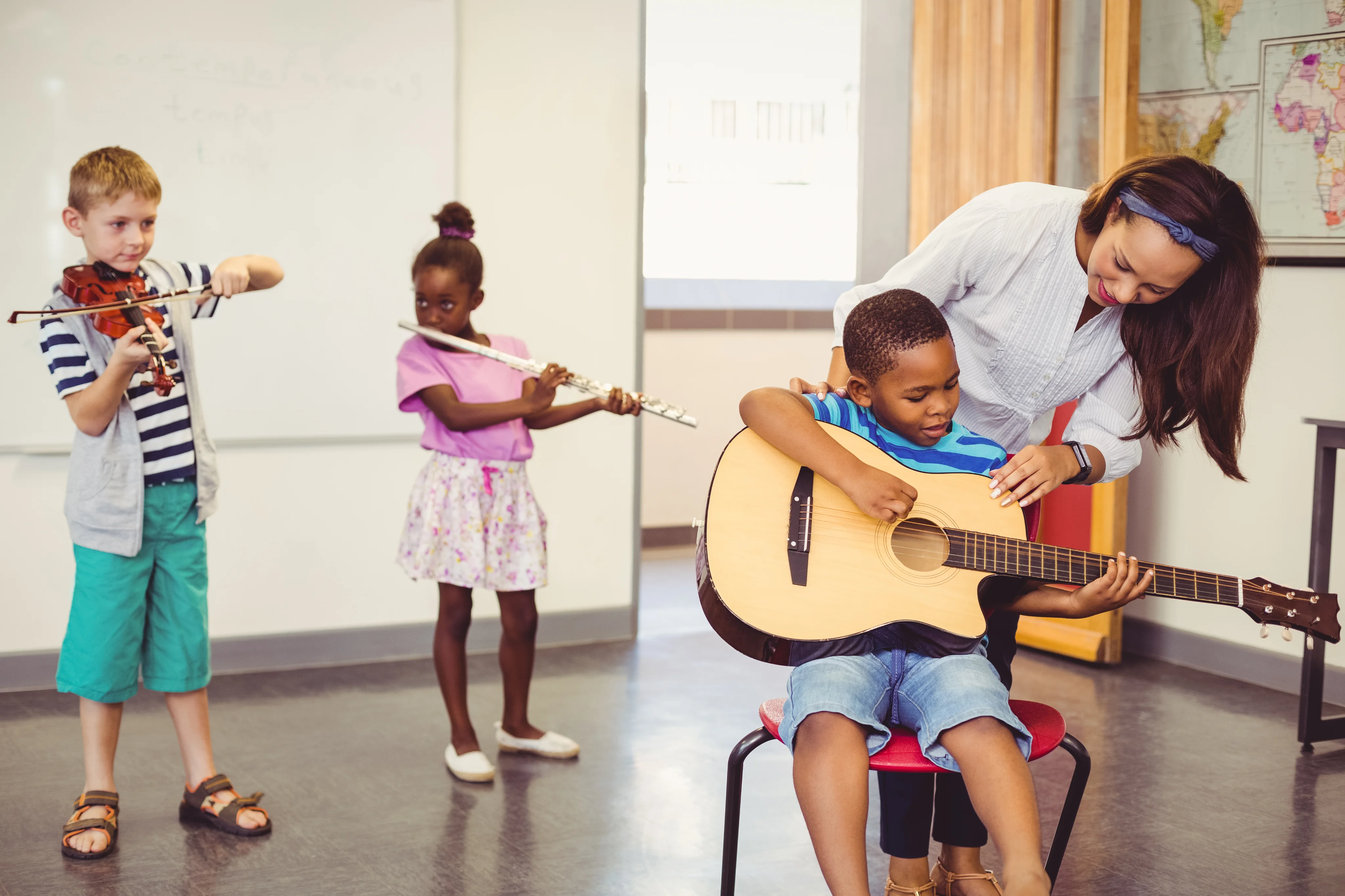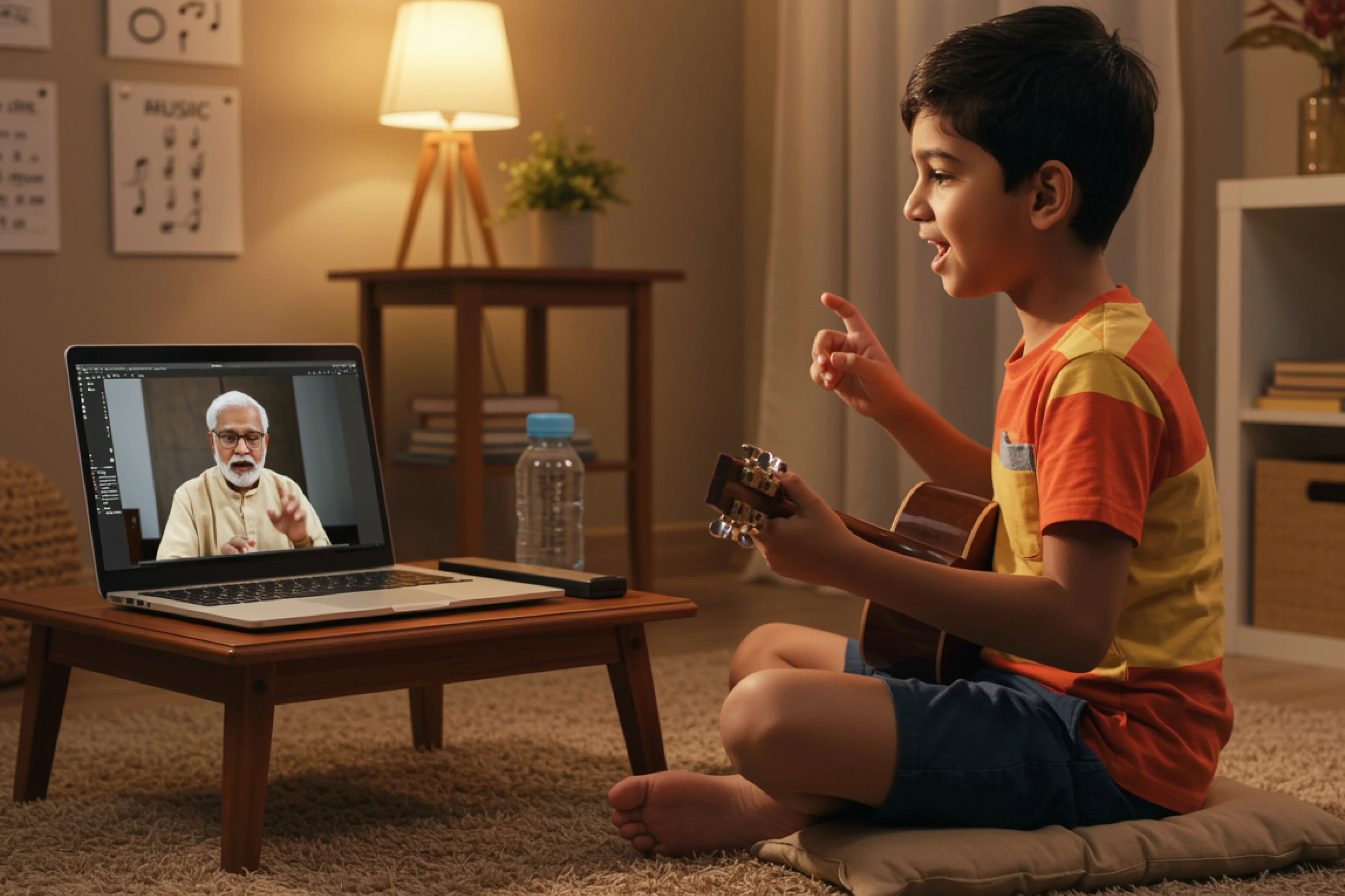Introduction
Music is much more than just a source of entertainment, it is a big component of lifelong learning. There are so many conflicting opinions about music. Does listening to music while studying improve your child’s grades? Will it make your child a genius or does it affect them? Music affects your child’s brain and heart and creates a magical bond between them. Let’s take a look at the benefits that music has on your child.
- Performing music helps with developing math skills
Music is a subject of its own that has majorly helped in mathematical skills and development. Children are introduced to various patterns and are required to count notes when performing and practising. Understanding fractions and how they function, leads to learning to read half and full notes, as rhythms, notes, and bars are all produced around mathematical principles. Math is important for scientific fields in higher education as well as overall academically. Thus, kids must begin developing these abilities as early as possible.
- Language skill building
Children who begin reading at an early age have the ability to comprehend basic language concepts. They can not only grasp new languages as they progress academically but also enhance their social skills. They are better at reading body language and being outspoken in relationships with others, both inside and outside of the classroom.
- Performing music improves brain development
Specific parts of the brain are required in performing music and are flexed, developed and strengthened. Their minds then work harder around the clock, remaining powerful and flexible long after the show has ended.
According to the research, this brain activity spills over into students’ academics, resulting in more well-rounded academic performance. When playing music, for example, the left half of the brain appears to grow quicker than the right side.
- Academic testing becomes easier
Reducing or dealing with stress becomes easier when one starts learning music. Music performance has also been connected to higher IQ. A child who has been practising for years is more likely to have a higher IQ than those who do not frequently participate in such rhythmic and concentrated practises, owing to their advanced development polished at various stages of musical instruction.
- Reduces stress
Managing internal and external pressures, like other aspects of life, demands self-discipline. As a child, learning how to comprehend music, mastering musical instruments, and playing music alone or with a band can help young children learn to deal with and compartmentalise stress in the future.
Playing music demands students to dedicate their whole attention to their instruments and musical charts. This teaches kids the importance of concentration. All of these abilities will come in handy later in life.
- Understanding of Culture and History
Music is a potent medium for cultural expression and preservation. Children are exposed to diverse musical traditions, genres, and historical periods through music education. This experience helps kids acquire an understanding of many cultures and historical settings. Students get a larger perspective on the world by comprehending the cultural and historical value of music, encouraging empathy and expanding their entire education.
- Multisensory Learning
Music stimulates numerous senses at the same time, including auditory, visual, and kinesthetic. Reading sheet music, listening to the sound generated, and coordinating bodily motions are all part of playing an instrument. This multimodal method to learning strengthens neuronal connections in the brain, allowing kids to better absorb and remember knowledge. This can result in better learning capacities across a variety of academic fields.
Why Is It Important To Introduce Your Child To Music?
Music has long been seen as a strong instrument that may help a child’s development in a variety of ways. It affects numerous areas of the brain, boosting cognitive functions such as memory, concentration, and problem-solving ability. Furthermore, learning to play an instrument or sing can improve mathematical and spatial thinking skills, resulting in improved performance.
Enrolling your child in online music lessons can provide various advantages. For starters, it offers an organised learning setting in which kids may express their creativity and get a greater knowledge of music theory. Music courses also teach discipline, patience, and perseverance as they learn to practise frequently and strive towards musical goals. Participating in group sessions or ensembles fosters key social skills such as collaboration and communication.
Conclusion
Unlock the potential of music for your child’s academic and personal development by enrolling them in online music classes for kids today.
At Artium Academy, we have a variety of classes in both vocal and instrumental. With our 1:1 classes from expert instructors, we provide a holistic approach to education for each one of you. With our musical classes, your child will develop creativity, critical thinking, and self-expression skills, fostering their overall growth. With all our additional benefits, we aim to create an experience on our platform for children to showcase their talents, empowering them to embark on a fulfilling artistic journey. Join our online music academy by booking a free trial class!
















